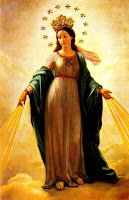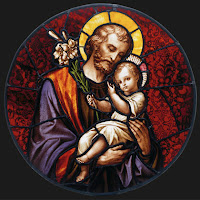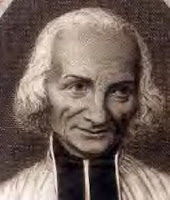
As the Simbang Gabi ends today, the Advent season likewise draws to a close. Tonight, the joyous season of Christmas begins. I find it significant that the entire season of Advent (and the Simbang Gabi for that matter) ends with the Canticle of Zechariah which now is known to us as the Benedictus. This is the hymn which the priest Zechariah sang when his tongue was loosened at the circumcision of his son, John the Baptist. Looking at his newborn son, Zechariah could not help but recall everything the angel said about his son who “shall be called Prophet of the Most High” and his mission “to go before the Lord to prepare his way, to give his people knowledge of salvation by the forgiveness of their sins.” But as you may have noticed, Zechariah’s appreciation of his son’s role in the plan of salvation enables him to look forward to the coming of the Lord whose way will be prepared by John: “he has come to his people to set them free… for us (he is) a mighty Savior of the house of his servant David.” Realizing the proximity of the fulfillment of God’s promises, he sings: “In the tender compassion of our God, the dawn from on high shall break upon us, to shine on those who dwell in darkness and the shadow of death, and to guide our feet into the way of peace.” This conclusion of the canticle is a fitting conclusion of the entire season of Advent. We will appreciate this more if we keep in mind the reading that opened Advent for us: “You know the time; it is the hour now for you to wake from sleep. For our salvation is nearer now than when we first believed; the night is advanced, the day is at hand.” (Romans 13: 11-14) At the beginning of Advent, St. Paul reminded us of how far advanced was the night that covered all of us with its darkness. And time pressed forward and Zechariah reminds us now where we are at the end of Advent: “the dawn from on high shall break upon us.” The night is far spent…we find ourselves at the break of dawn. The Savior is about to put an end to the reign of darkness. He is coming as the Light of the world. He is the Oriens, the Radiant Dawn, the splendor of eternal light and the Sun of justice who comes to shine on those who dwell in darkness and in the shadow of death.
And our lives as Christians are constantly “oriented” toward Christ the Orient, the Rising Dawn. Our sense of space is always “oriented.” When I went to the Holy Land, I brought with me a compass which proved to me that in the Motherland of the Church, the birth place of Christianity, all Christian Churches had their altars facing the east. If the Jews prayed facing the west (where the temple used to stand), the Christians faced the east (where the Mount of Olives stood). The Christian heritage of prayer had a specific liturgical direction, which is the east, the rising sun. The orientation of the Christian space is but a reflection of the orientation of the Christian time. The Benedictus is the official morning prayer of the Church. Christians greet each morning with this canticle of Zechariah. Our daily morning canticle, as also our yearly celebration of Advent does, reminds us that we constantly look forward in joyful hope to the definitive dawn of the eternal Day, the glorious return of our Savior Jesus Christ. To us, history moves forward to a definitive end, which is the parousia, the second coming of Christ. History is not a directionless movement of time. Slowly and surely, it moves towards the glorious revelation of Jesus Christ.
I find it significant that in the old funeral rites, the Benedictus is sung just before the body is laid to rest in the tomb. The canticle seems to be the Church’s way of assuring the dead that they shall not remain in the shadow of death forever and so they must await their resurrection on the last day. In between Mount Zion (where Jerusalem and the Temple stood) and the Mount of Olives (where Jesus ascended to heaven) is a valley called the Valley of Jehosafat. According the Jewish tradition, at the end of time, God will descend on this valley to judge the whole world. Thus, at the foot of the Mount of Olives, the Jews buried their dead with their faces towards Jerusalem. They do this so that when God descends on the valley of Judgment, the dead will rise facing Jerusalem. However, at the other side of the valley, at the foot of Zion, just outside the walls of the ancient Jerusalem, the Christians buried their dead with their faces towards the Mount of Olives (which was east of Zion). They do this so that when Christ returns to judge the living and the dead, the dead will rise facing the Mount of Olives. In fact, when we bury our dead, we must position them in such a way that their faces are turned towards the rising sun because they lay in joyful hope for the coming of our Lord Jesus Christ who shall come to judge the living and the dead.
Even with our excitement over the proximity of Christmas, the Church does not forget the very purpose of Advent, which is, to keep us vigilant for the return of Christ. The day or the hour we do not know but we are sure that it will come. The Lord indeed keeps his promises. At his incarnation, he fulfilled his promises to the prophets. At his resurrection, he fulfilled his promise to his Apostles. He has one last promise to fulfill and we know he will keep it: his coming at the end of time. And so, we bid farewell to Advent with the ancient Christian prayer: Marana tha. Come Lord Jesus. Halina Hesus halina.

























